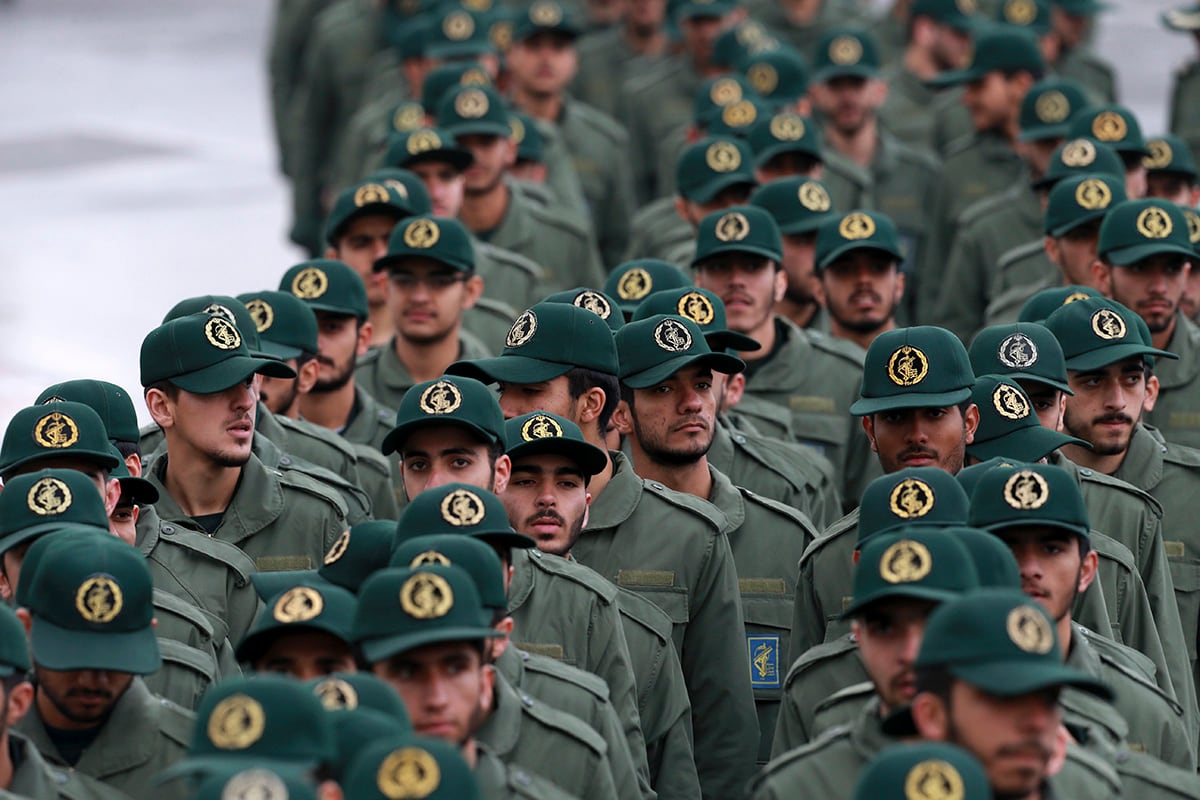President Donald Trump asked advisors in the past week if he had military action options against Iran following recent reports of the country’s significant increase in its nuclear stockpile, according to reporting by The New York Times.
But, according to at least four current and former U.S. officials, the Times reported that senior officials warned such a strike against Iran’s facilities could easily escalate into a wider conflict in the coming weeks, the last of the president’s tenure.
Those officials included Vice President Mike Pence; Secretary of State Mike Pompeo; Christopher C. Miller, the acting defense secretary; and Gen. Mark A. Milley, according to the Times.
RELATED

In June 2019, Military Times reported in-depth on what experts predict might happen, should the United States and Iran square off in an armed conflict.
More than a dozen experts, both still in service and retired regional military officials, concluded that while the United States would likely win in the short term by striking multiple facilities within Iran, the ensuing fallout across the region and within Iran’s borders would far outweigh the post-major combat challenges the United States faced after the 2003 Iraq invasion.
Leaked war plans at that time called for as many as 120,000 U.S. troops to be sent to the region, should they be needed for an invasion of Iran. In reality, the U.S. sent a carrier battle group with long-range bombers, an additional 900 troops and Patriot missile batteries.
Any attack on Iran, experts told Military Times, would likely see reprisal attacks by Iranian-backed militia groups across the Middle East but mostly in Iraq against U.S. forces and also against positions in Israel.
Key choke points would likely include the Strait of Hormuz. Iranian missiles also have ranges that extend all the way to the Mediterranean Sea and as far as Poland in Europe.
At that time, Iranian leaders had announced restarting their uranium processing unless signers of the 2015 nuclear deal between the United States, China, France, Germany, Russian, the United Kingdom and the European Union eased sanctions on Iran.
The International Atomic Energy Agency has reported that Iran’s uranium stockpile is now “12 times larger” than was permitted under the nuclear deal before Trump abandoned the deal in 2018, according to the Times. That’s mostly from estimates about Natanz, Iran, where the IAEA made their findings.
The amount of material has been reported at 5,385 pounds of low-enriched uranium, or enough for two nuclear weapons, according to an analysis of the IAEA’s report by the Institute for Science and International Security, the Times reported.
The same report noted that the materials would still need several months of processing and not likely be able to produce a weapon until late spring at the earliest.
Iranian officials have repeatedly denied seeking nuclear material to build a weapon.
The IAEA also has not been allowed access to another suspected site in Iran, the Times reported.
Pompeo and Milley reportedly described the potential risks of military escalation to Trump. And officials concluded the meeting with the understanding that a missile strike against Iran was not a near-term option, officials told the Times.
But Trump may still be looking at ways to hit Iranian assets and allies, including militias in Iraq.
On Jan. 3, a U.S. strike killed Qasem Soleimani, a top Iranian general, leader of the Iranian Revolutionary Guard Corps-Quds Force, which is a U.S.-designated Foreign Terrorist Organization and has been linked to IED attacks on U.S. and coalition forces during the Iraq War.
The United States has conducted multiple cyberattacks on Iranian nuclear facilities in the past decade, causing the destruction of an estimated 1,000 centrifuges.
The Oval Office call for military options displayed how Trump continues to face a host of threats as he finishes his term.
But a strike on Iran may not play well to his political base of support, which remains opposed to further entanglements of conflict in the Middle East, the Times reported. Such a strike, however, might taint relations with Iran, making it more difficult for President-elect Joseph R. Biden Jr. to restart the 2015 Iran nuclear deal.
Trump dismissed Secretary of Defense Mark Esper along with other top defense aides last week. Since then, defense and national security officials have told some media outlets they worry that the president might begin operations against Iran as his term ends, the Times reported.
Todd South has written about crime, courts, government and the military for multiple publications since 2004 and was named a 2014 Pulitzer finalist for a co-written project on witness intimidation. Todd is a Marine veteran of the Iraq War.
